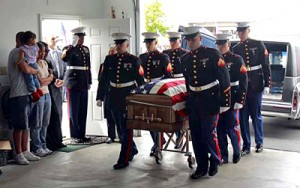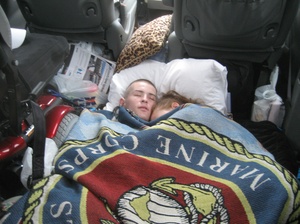I find much with which to agree when Bing West weighs in, and he has done so on counterinsurgency in an odd context: he is reviewing three books. I will focus on his review of Kilcullen’s book, Counterinsurgency, by copying the parts relevant to my observations.
According to Kilcullen, the theory that nation building is synonymous with counterinsurgency began in 2006 with a “group of intelligent and combat-experienced junior officers working quietly to change the way that military organizations thought and operated.” At that time, too many U.S. battalions were charging around Iraq in search of an ephemeral enemy, rousting civilians whose retaliation was aiding the insurgents. Kilcullen’s “intelligent junior officers” wanted to revise doctrine so that U.S. soldiers would protect rather than harass the population. Their efforts were codified in Counterinsurgency Field Manual 3-24 (FM 3-24), which defined nation building as a military mission and focused on population protection rather than offensives against the enemy.
My first observation has to do with the fact that there are many defenders of contemporary counterinsurgency doctrine who ascribe to it false beliefs. That is, they do not understand that it is an either-or relationship in Kilcullen’s view (and in FM 3-24), not a both-and relationship. It isn’t about both targeting the enemy and winning hearts and minds by protecting the population. It’s about jettisoning the notion of chasing or attacking the enemy altogether. Population-centric counterinsurgency is an exclusive-use procedure to the doctrinaire COIN officers. Merely incorporating population considerations doesn’t do it. To them it is a radical paradigm shift. Of course, it is one with which I disagree. Continuing:
But while 45 percent of U.S. Army officers believed that the publication of FM 3-24 had significant influence in changing field operations, only 22 percent of the Marine Corps’s upper ranks concurred. Success in Iraq emanated from Anbar, an area assigned to the marines. There, various Sunni tribes came over to the strongest tribe of them all—the Americans—and turned against al-Qaeda.
In this now-famous province, there was scant “nation building.” The Sunnis in Anbar distrusted Prime Minister Nuri al-Maliki, a sectarian Shia who ignored local officials and withheld funding. When General David Petraeus took command, his brilliance lay in building on the momentum already created from the bottom up, eventually paying one hundred thousand Sunni “Sons of Iraq” to protect their local neighborhoods. The United States was able to turn the tables because the Sunnis tired of fighting well-equipped, well-trained and well-informed U.S. armed forces, not because Iraqi politicians put aside their thievery and selfishness.
Bing is right. There was scant nation building in the Anbar Province. Bing is wrong to ascribe the Sons of Iraq program to Petraeus (Odierno was responsible for championing the idea, while the Marines were first to come up with the idea and implement it with U.S. Marine Corps funds). But it’s no mistake that Marine Corps officers don’t buy into the idea of population-centric COIN as an exclusive-use procedure. They didn’t do it in the Anbar Province, and they won.
IN AFGHANISTAN, population protection and nation building have been emphasized at the unintended expense of aggressive war fighting. The top commander there, General Stanley McChrystal, has issued severe restrictions on the use of artillery and air support. While there is an admirable moral aspect to this restraint, the strategic rationale is less clear. If NATO so alienates the population by accidentally killing civilians that many more join the Taliban, then why do the Taliban deliberately kill three times as many ordinary Afghans without causing three times the backlash, leading to their defeat?
Kilcullen recommends “putting the well-being of noncombatant civilians ahead of any other consideration, even—in fact, especially—ahead of killing the enemy.” That too is a wise and moral admonition. But don’t expect reciprocity. The Pashtun tribes do not betray the Taliban in their midst. Few are arrested, and even fewer are put behind bars, because the police and judges routinely accept bribes in return for releases. The result is that Afghanistan on a per capita basis holds fewer criminals (insurgents included) in jail than does Sweden.
Based on his infantry experience and training, Kilcullen composes doctrinal essays; they are meant to provide signposts and general guidance. When he writes prescriptions such as “focus on the population . . . and fight the enemy only when he gets in the way,” others take him too literally. In southern Helmand Province, for instance, visiting American officials routinely stroll through markets that were until recently under Taliban control. Yet when U.S. troops in Helmand attacked enemy strongholds far from the marketplaces, they were criticized for violating the doctrine of protecting the population.
Their commander, Brigadier General Larry Nicholson, in a conversation with me, responded, “Of course we guard the local markets. But I won’t grant the enemy a sanctuary to decide when to attack those markets. Wherever the Taliban run, I’m coming after them.”
What a strange and bizarre world in which we live. A U.S. Marine Corps general must defend his attacks against the enemy from attacks within the U.S. military. Finally:
Because they are partnered with our troops, Afghan soldiers are copying our rules of engagement and risk-avoidance procedures. Since they wear our heavy armor, they too cannot pursue the light and mobile Taliban forces. When the enemy initiates contact, the Afghan soldiers are trained to wait alongside our troops until our attack helicopters force the Taliban to flee. The Afghan soldiers will not be able to fight that way as U.S. resources are reduced. The Afghan security forces simply cannot take over the fight anytime soon. By not sending in sufficient troops years ago and by pursuing erratic operational strategies since, the U.S. military has prolonged its central task of training Afghans to defeat the Taliban …
Kilcullen is a stalwart warrior who has experienced combat. His essays in Counterinsurgency are thoughtful and spirited, as befits a scholar whose ideas helped to shape the 2006 FM 3-24. At the same time, the danger inherent in indeterminate counterinsurgency, defined as population protection and fighting “the enemy only when he gets in the way,” is the unintended enervation of our own warrior spirit.
At least the Marines are continuing to close with and destroy the enemy by fire and maneuver (doing squad rushes against the enemy in Afghanistan). I cannot vouch for what the Army is doing, but as for the Afghan National Army, we have discussed their ineptitude before. They are still waiting on the sidelines for U.S. forces to clear the enemy. This is a recipe for disaster, and they won’t be anywhere near ready by mid-2011. We are pursuing a failing strategy. But Bing is right concerning U.S. forces. Population-centric COIN – when applied as an exclusive-use procedure – appears to be causing the enervation of the warrior spirit.





